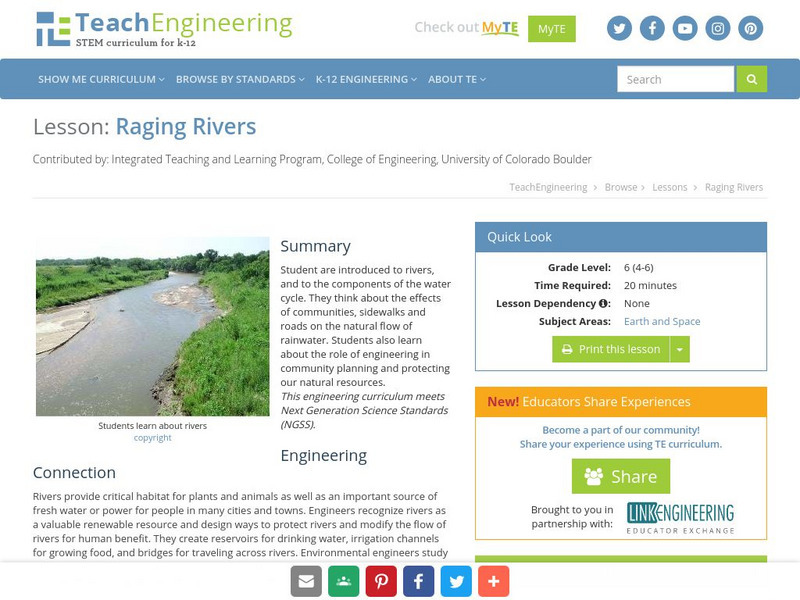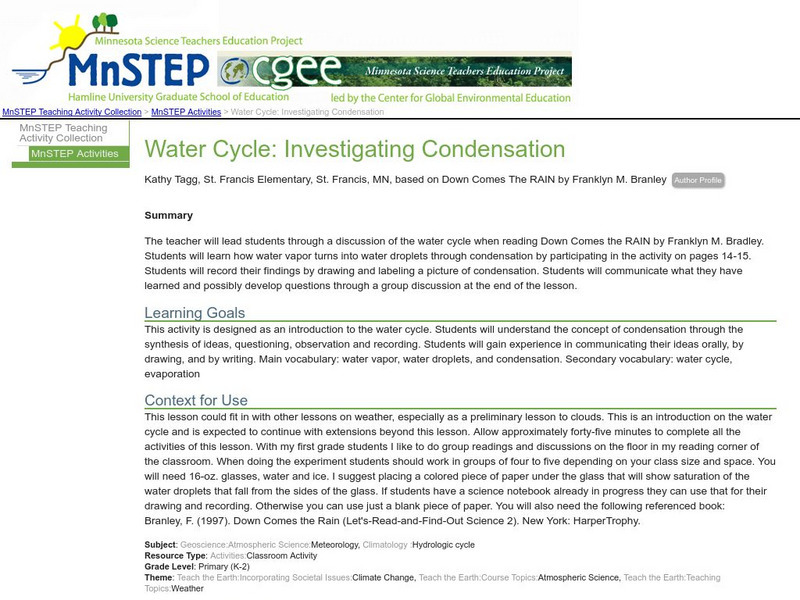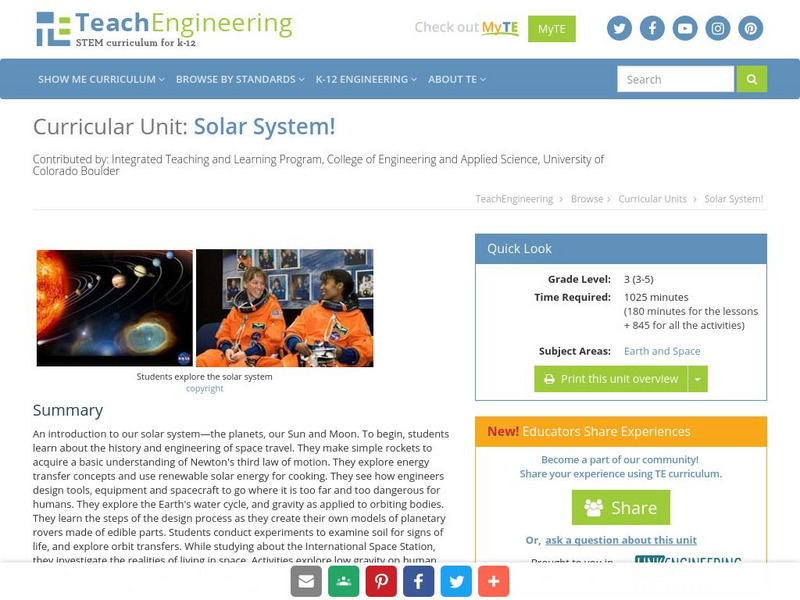Hi, what do you want to do?
Curated OER
Magnetic Discovery Bottle
Students examine how to conduct simple investigations and use simple equipment to gather data. In this magnet instructional activity students decide what types of objects are attracted to magnets.
Curated OER
Design a Reef!
Students design a functional model of a coral reef ecosystem. In this coral reef activity, students identify the energy sources and material cycles of a coral reef. They write an essay about their niche in their own ecosystem.
Curated OER
Gardening for Beauty, Food, and Enjoyment
First graders create their own garden. In this plant lesson, 1st graders discover the essential elements for a plant to grow. They planted their own garden and read the amount of space needed and the sunlight preferred for each plant.
Curated OER
Europe Puzzle
In this geography worksheet, students complete a crossword puzzle in reference to the geography of Europe. They identify the capital cities of various countries and the bodies of water which surround specific countries of Europe.
Curated OER
Flower Reproduction
Fifth graders examine the cycle of flower reproduction. They listen to a poem about a bee, observe and examine flowers in small groups, and develop a class KWL chart. Students then read about flower reproduction in their textbook, and...
Curated OER
Think Green
Students experience and practice compositing and recycling through hands-on-activities. They distinguish between which items from their trash can be recycled, composted and reused. The process for making recycled paper is also covered in...
Curated OER
Clouds
Students study how to use the Internet as a static information collection tool, to enhance the literature stories on the weather and study how to use the calculator.
Curated OER
Seeds and Similarities
Students use the scientific inquiry method to identify the changes in a plant's life cycle. In groups, they plant different types of plants and use a chart to compare and contrast their growth rates. They share their conclusions with...
Curated OER
Ziplock Chemistry
Students investigate various chemical reactions when creating mixtures in ziplock baggies. For this chemistry lesson, students will recognize various chemical reactions and cite evidence. Safety and assessment strategies are included in...
Science Struck
Science Struck: A Simple Guide to the Steps of the Water Cycle
The steps in the water cycle and the processes that occur are explained in this resource.
Science Education Resource Center at Carleton College
Serc: Mn Step: Terrarium Investigating the Water Cycle in a 1 or 2 Liter Bottle
For this activity, pupils construct a terrarium in a bottle, and observe it over time to see when it 'rains,' which will indicate the completion of a water cycle.
TeachEngineering
Teach Engineering: Raging Rivers
The lesson introduces students to the steps of the water cycle and rivers. They think about the effects of communities, sidewalks and roads on the natural flow of rainwater. Students also learn about the role of engineering in community...
Science Education Resource Center at Carleton College
Serc: Mn Step: Water Cycle: Investigating Condensation
Students will listen to a story about the water cycle, observe how water droplets form on a glass of icy water, then draw and label a picture showing condensation.
Other
My Science Box: Crayon Rock Cycle
A great lesson plan that uses crayon shavings, aluminum foil, and hot water to introduce the three main types of rocks and the processes needed to form them. Included are the lesson objectives, vocabulary, and step-by-step procedures to...
US Environmental Protection Agency
Epa: Water Treatment Process
In this illustratd diagram of the water treatment process, click on each step to learn more information.
Science Education Resource Center at Carleton College
Serc: Mn Step: Watersheds Urban and Rural
In this activity learners build models of two types of watersheds, one urban and one rural. They will then simulate rain or the water cycle and observe what happens to the 'soil.' This activity leads to discussions about the water cycle,...
TeachEngineering
Teach Engineering: Solar System!
An introduction to our solar system: the planets, our Sun and our Moon. Students begin by learning the history and engineering of space travel. They make simple rockets to acquire a basic understanding Newton's third law of motion. They...




















